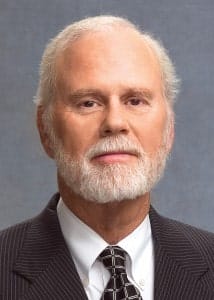 By George A. Huber, JD, MSIE, MSSM
By George A. Huber, JD, MSIE, MSSM
The Affordable Care Act added section 501(r) to the United States Internal Revenue Code which requires each tax-exempt hospital to conduct community health needs assessments (CHNAs) every three years. These assessments must take into account input from persons with a broad range of interests in the communities the hospitals serve including individuals with expertise in public health. The assessments are to be the basis for each hospital’s planning for its community benefit program.
Some hospitals have already been doing variations of the CHNA requirement. However, most hospitals are primarily concerned about having the right services in place to address individual patient treatment needs. Most hospitals have been understandably cautions about venturing into the broad un-reimbursable field of public health and, specifically, community health.
Health care is only one of many determinants of the health of a population. Other determinants include individual behavior, social factors, physical environment, and genetics as they all relate to morbidity, mortality, quality of life, and health disparities. From many hospitals’ historical perspective, these have been fields better left to government and other community organizations to address.
However, hospitals have always been considered a relatively untapped resource available to enhance the health status of the community at large. The CHNA requirements of 501(r) provide an incentive for hospitals to get more involved in population-based health. Failure for a hospital to do so could result in a $50,000 penalty per year and possible loss of tax-exempt status at the federal and state levels. Additionally, the more hospital reimbursement becomes population and outcome dependent, the more hospitals will find it useful to understand the health risks of the population they serve and how they might realistically help to reduce them.
We have identified some of the ways in which public health experts might help hospitals as well as their other advisors and consultants in satisfying CHNA requirements in a useful fashion:
1. Identifying and using relevant data sources and methods to establish the hospital’s “community”, to determine realistic health profiles of the health status of community members, to develop appropriate population-based health benchmarks, and to involve community stakeholders in identifying priorities for intervention. This includes methods for obtaining stakeholder input through such mechanisms as focus groups, town meetings, surveys, and concept mapping.
2. Recommending evidence-based programs to meet key community health needs. This should be followed by linking the current inventory of community programs to CHNA as well as identifying gaps and proposing alternatives to address the gaps.
3. Providing guidance in the evaluation of “community benefit” programs including what is needed for effective and reasonable evaluation, such as rigorous data collection, audit, analysis, and comparison to reasonable benchmarks.
Throughout the year, our writers feature fresh, in-depth, and relevant information for our audience of 40,000+ healthcare leaders and professionals. As a healthcare business publication, we cover and cherish our relationship with the entire health care industry including administrators, nurses, physicians, physical therapists, pharmacists, and more. We cover a broad spectrum from hospitals to medical offices to outpatient services to eye surgery centers to university settings. We focus on rehabilitation, nursing homes, home care, hospice as well as men’s health, women’s heath, and pediatrics.







